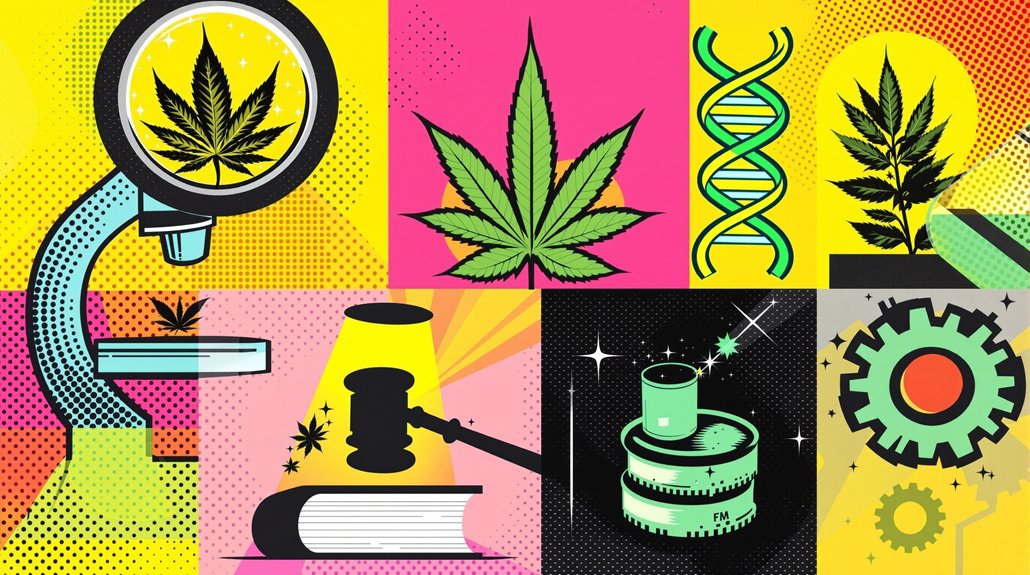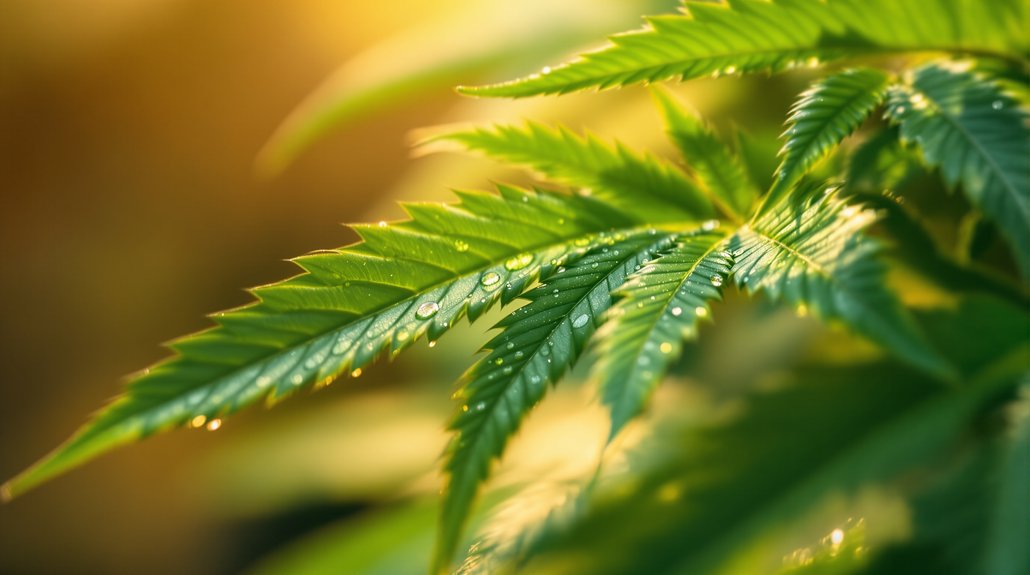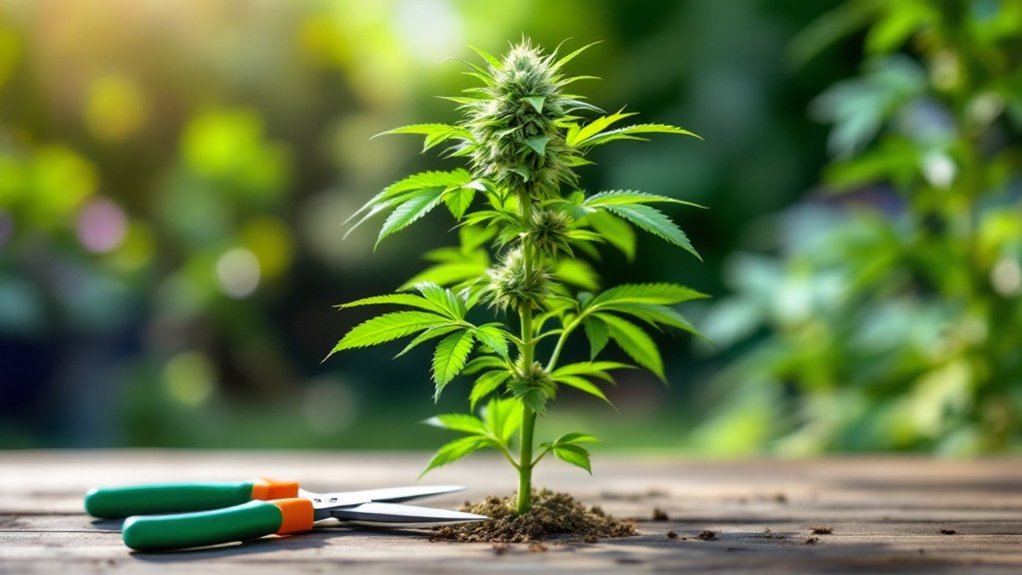The cannabis industry’s explosive growth has created a job market where proper credentials separate serious candidates from hopeful enthusiasts. State regulatory frameworks now demand specific certifications for most cannabis positions, from budtenders to extraction technicians. Entry-level certificates typically require 20-40 hours of coursework, while specialized laboratory certifications can span several months. These programs cover everything from plant biology to compliance protocols, because knowing your terpenes from your cannabinoids isn’t just impressive cocktail party knowledge anymore. The real question becomes which certifications actually open doors.
Understanding Legal Requirements and State Credentialing Systems

As cannabis markets mature across the United States, state governments have rapidly implemented extensive credentialing systems that fundamentally reshape how the industry manages its workforce.
These mandatory programs now track every individual involved in cultivation, distribution, processing, testing, and transport operations within licensed businesses.
Oklahoma exemplifies this trend, requiring all medical marijuana employees to obtain official credentials starting January 1, 2024. Workers must complete state-mandated OSBI background checks within 30 days of application and pay annual $30 fees.
Credentials expire January 31 each year, demanding prompt renewals. The credentialing responsibility falls directly on medical marijuana business license holders to ensure their employees maintain proper documentation.
New York takes a different approach, transferring its Medical Cannabis Program to the Office of Cannabis Management for streamlined operations.
Most states now deploy digital registration portals, replacing cumbersome paper processes with automated tracking systems that guarantee regulatory compliance. These complex regulations vary significantly between jurisdictions, creating additional challenges for businesses operating in multiple states.
Essential Entry-Level Cannabis Certifications by Role
Cultivation roles demand thorough plant knowledge through programs like the Cultivation Essentials Certificate, covering seed-to-sale processes and facility maintenance.
Lab positions require technical expertise via Cannabis Extraction & Product Development Specialist certificates and HACCP training, adopted by over 30 states for edibles manufacturing.
Retail workers need Budtender Certification Programs for customer service and compliance fundamentals. Entry-level professionals can also pursue CCCP certification to gain foundational risk management knowledge essential for navigating the regulated cannabis environment.
These aren’t your typical customer service courses. Each certification addresses specific regulatory requirements that can make or break business operations, transforming what once relied on informal training into standardized professional development pathways. The 24/7 accessibility of online programs allows working professionals to advance their skills without disrupting their current employment schedules.
How Certifications Boost Your Career Prospects in Cannabis

While the cannabis industry’s explosive growth creates abundant opportunities, professionals with specialized certifications consistently outperform their uncredentialed counterparts in both hiring processes and career advancement.
Certified candidates distinguish themselves in competitive applicant pools, often bypassing entry-level screening for mid-tier positions. Hiring managers prioritize verified expertise, particularly for regulated roles like extraction technician or compliance specialist. Many employers now require certifications for specialized positions.
The financial rewards prove substantial. Senior certified professionals command $75,000–$125,000+ annually, with formal credentials facilitating performance bonuses and compliance-related pay increases. Advanced certifications serve as prerequisites for supervisory roles. Certified extraction technicians can earn between $50,000 to $80,000 per year, reflecting the technical expertise required for these specialized positions.
Beyond compensation, certification programs provide exclusive networking access through industry conferences and alumni networks. These connections generate job leads and mentorship opportunities. Employment opportunities are expected to grow significantly as industry continues its rapid expansion.
As the industry matures, wage differentiation increasingly favors credentialed professionals.
Selecting Quality Training Programs That Meet Industry Standards
Securing certification represents only half the equation, choosing programs that meet rigorous industry standards determines whether credentials translate into meaningful career advancement.
The gold standard remains ANSI National Accreditation Board (ANAB) certification, which signals adherence to ASTM D8403 benchmarks. Smart candidates verify accreditation status before enrollment, since not all providers meet these requirements.
Quality programs integrate extensive modules covering cannabis laws, safe sales practices, and regulatory compliance. Final exams with 75% minimum passing scores guarantee knowledge retention, while immediate certificate downloads enhance employability prospects.
ASTM-aligned curricula include Corrective Action and Preventive Action protocols, vital for operational safety. Leading programs offer flexible training formats including both live instructor-led sessions and OnDemand options to accommodate different learning preferences.
State-specific content matters greatly. Some jurisdictions mandate exact provider standards or accreditation levels for legal cannabis employment. Programs targeting cannabis vendors, budtenders, and management professionals provide role-specific training that aligns with industry demands.
Annual recertification keeps credentials current with evolving regulations, making ongoing program selection essential for sustained career viability. Specialized training in workplace safety is increasingly important as the industry faces significant biological and chemical hazards in cultivation facilities.
Specialized Certifications for Advanced Cannabis Careers

Beyond basic budtender credentials, specialized certifications now target professionals seeking advanced roles within cannabis’s most technical sectors.
Cannabis Science & Laboratory Certification programs drill deep into plant biology, genetics, and analytical technology for identifying toxins and quantifying cannabinoids. These credentials prepare graduates for laboratory technology and research positions where precision matters most.
Medical & Therapeutic Cannabis Certification focuses on dosing, patient care, and clinical guidelines. Graduates become medical consultants and dispensary pharmacists who navigate complex therapeutic applications.
Meanwhile, Cannabis Regulatory & Compliance Certification tackles federal and state regulations, licensing requirements, and audit preparation. These specialists become compliance officers managing evolving legal standards.
Advanced Cultivation & Processing Certification covers strain development and extraction methods. Programs in this field combine the science of medical cannabis with practical manufacturing techniques to prepare students for grower-processor companies.
Business Operations & Management Certification handles supply chain logistics and scalable business models for industry leadership roles. Many programs now offer flexible online formats to accommodate working professionals seeking career advancement in this rapidly expanding industry.










